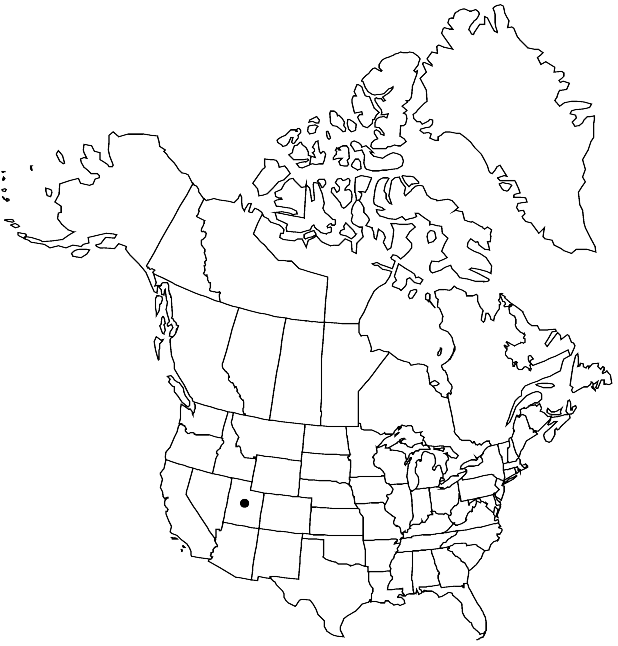Boechera falcatoria
Brittonia 55: 3. 2003.
Perennials; short- to long-lived; apomictic; caudex sometimes woody. Stems usually 2–7 per caudex branch, arising from margin of rosette near ground surface, 0.5–2(–3) dm, densely pubescent proximally, trichomes simple and stalked, 2-rayed, 0.3–0.8 mm, glabrous distally. Basal leaves: blade narrowly oblanceolate, 1–3 mm wide, margins entire, ciliate, trichomes to 1 mm, surfaces pubescent, trichomes stalked, 2–4-rayed, 0.3–0.8 mm. Cauline leaves: 3–7(–10), not concealing stem; blade auricles 0.2–1 mm, surfaces of distalmost leaves glabrous. Racemes 6–15-flowered, unbranched. Fruiting pedicels horizontal to divaricate-ascending, straight, 3–9 mm, glabrous. Flowers ascending at anthesis; sepals pubescent; petals white or lavender, 5–7 × 1.5–2.5 mm, glabrous; pollen spheroid. Fruits horizontal to divaricate-ascending, not appressed to rachis, not secund, usually strongly curved, edges parallel, 3.5–6.5 cm × 1.7–2 mm; valves glabrous; ovules 50–84 per ovary; style 0.05–0.5 mm. Seeds uniseriate, 1.5–2 × 1.1–1.5 mm; wing continuous, 0.1–0.2 mm wide.
Phenology: Flowering May–Jun.
Habitat: Rock outcrops and gravelly soil in sagebrush and mountain shrub communities
Elevation: 2000-2200 m
Discussion
Of conservation concern.
Although the exact parentage of Boechera falcatoria, an apomictic hybrid, remains in doubt, it is virtually certain that B. cusickii contributed at least one genome. Boechera falcatoria has been confused with both B. pendulina and B. perennans, but is amply distinct from both (see M. D. Windham and I. A. Al-Shehbaz 2007 for detailed comparison). Despite the proximity of the type locality to both Idaho and Nevada, the species is known only from northwestern Box Elder County.
Selected References
None.
